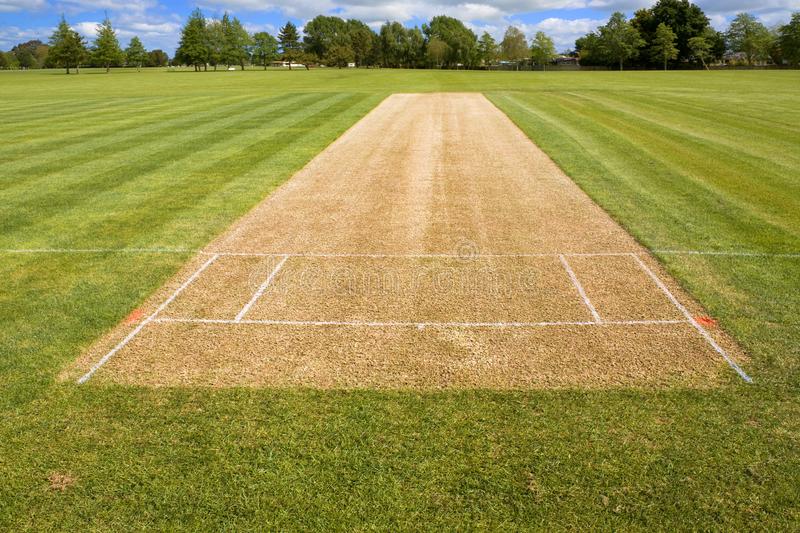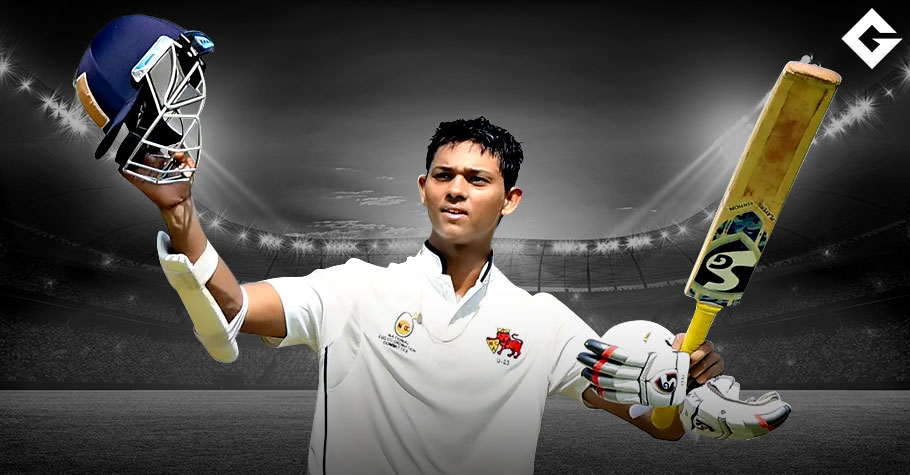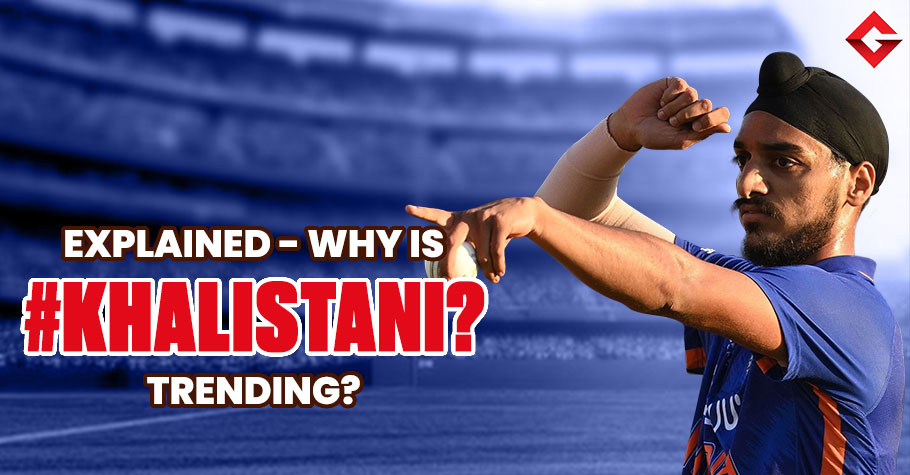 Sports
Sports
Exploring the Sociological Significance of Cricket
Exploring the Sociological Significance of Cricket: Cricket is a bat-and-ball game played between two teams of eleven players on a field at the centre of which is a 22-yard (20-meter) pitch with a wicket at each end, each comprising two bails balanced on three stumps. The batting side scores runs by striking the ball bowled at the wicket with the bat, while the fielding side tries to prevent this by preventing the ball from leaving the field and by getting the ball to dismiss the batters.
Cricket is a popular sport in many countries, particularly in England, Australia, India, Pakistan, and the West Indies. It is also played in many other countries, including South Africa, Sri Lanka, Bangladesh, New Zealand, and Zimbabwe.
The sociology of cricket is the study of the social and cultural aspects of the game. This includes its role in national identity, its popularity among different social groups, its relationship with gambling, and its impact on gender relations.
ALSO READ: Fawad Alam Leaves Pakistan Cricket Behind, Finds New Opportunities In The USA
The trajectory of cricket’s evolution reflects shifting societal norms and dynamics. Historically, cricket was emblematic of colonialism and elitism, originating in the British aristocracy. The sport’s exclusivity limited its reach, serving as a mirror for the social hierarchies of its time. However, over the years, cricket has undergone a democratization process, striving to be more inclusive and accessible.
Players like M.S. Dhoni, who emerged from modest beginnings to become cricketing legends, epitomize the sport’s changing landscape. Cricket’s role in dismantling class barriers and offering avenues for upward mobility is evident in the rise of cricketers from diverse socioeconomic backgrounds. Yet, vestiges of class distinctions persist within cricket culture, underscoring the complex interplay between sport and social stratification.
Cricket and National Identity
Cricket is often seen as a symbol of national identity in many countries. In England, for example, cricket is often referred to as “the national game”. It is seen as a way of celebrating Englishness and of uniting people from different backgrounds.
In India, cricket is also seen as a symbol of national identity. The Indian cricket team is one of the most popular teams in the world, and its success is often seen as a reflection of India’s growing power and influence.
The relationship between cricket and national identity is complex. In some cases, cricket can be used to promote a sense of national unity. However, it can also be used to reinforce social divisions. For example, in England, cricket has traditionally been seen as a “gentleman’s game”, and this has led to some people feeling excluded from the sport.
Cricket and Social Class
Cricket has traditionally been seen as a sport for the upper classes. This is because it was originally played by the landed gentry, and it was not until the 19th century that it became more widely accessible.
However, in recent years, cricket has become more popular among people from all social classes. This is due in part to the growth of professional cricket, which has made the sport more accessible to people from all backgrounds.
There are still some social class divisions in cricket. For example, the most expensive seats at Test matches are often in the pavilion, which is traditionally seen as the preserve of the upper classes. However, cricket is becoming increasingly inclusive, and it is now possible for people from all social classes to enjoy the sport.
ALSO READ: Reasons Revealed! Why PCB Reappoints Inzamam-ul-Haq As Chief Selector of Pakistan Cricket Team?
Cricket and Gambling
Gambling is a major part of cricket culture. There is a long tradition of betting on cricket matches, and this is still very popular today.
Gambling can have both positive and negative effects on cricket. On the one hand, it can provide a source of income for players and clubs. On the other hand, it can lead to match-fixing and other forms of corruption.
The International Cricket Council (ICC) has taken steps to try to prevent match-fixing. However, the problem remains, and it is something that the cricket world needs to address.
Cricket and Gender Relations
Cricket has traditionally been seen as a male-dominated sport. However, in recent years, there has been a growing number of women playing cricket. The women’s game has come a long way in recent years. There are now professional women’s cricket leagues in many countries, and the women’s international game is becoming increasingly popular.
However, there are still some challenges facing the women’s game. For example, women’s cricket does not receive the same level of media coverage as the men’s game. This can make it difficult for women’s cricket to attract new fans and sponsors.
The ascent of women’s cricket has challenged traditional norms, amplifying the voices of female athletes and dismantling long-held stereotypes. The accomplishments of teams like Australia, England, and India in women’s cricket are influencing societal perceptions and attitudes towards female sports.
Tournaments such as the Women’s T20 Challenge and the Women’s Big Bash League (WBBL) are vital steps towards empowering women in cricket. These platforms not only showcase extraordinary talent but also encourage the younger generation to challenge gender norms and pursue their dreams. Cricket, once a symbol of masculinity, is gradually evolving into a vehicle for gender inclusivity and empowerment.
Cricket and Social Inclusion
Cricket can play a role in promoting social inclusion. It is a sport that can be enjoyed by people from all backgrounds, and it can provide a way for people to come together and build relationships.
Cricket can also be used to promote social change. For example, in South Africa, cricket was used to help to promote reconciliation after the end of apartheid. Cricket can be a powerful force for good in society. It can help to bring people together, promote social inclusion, and challenge social divisions.
Nationalism and Patriotism
Cricket’s ability to evoke potent feelings of patriotism and nationalism is unparalleled. Rivalries between nations transform the cricketing arena into a battleground for national honor. The electrifying atmosphere of a cricket stadium, charged with the passion of fans, exemplifies how cricket serves as a conduit for expressing national pride. Victories are celebrated not just as a team’s achievement, but as triumphs of the nation itself.
The iconic India-Pakistan cricket matches exemplify this sentiment. These encounters are not solely about cricket but about the historical and political complexities that have shaped the relationship between the two nations. These matches become a platform where emotions, often intertwined with decades of history, are laid bare, reflecting the broader sociopolitical narrative.
Globalization and Identity Negotiation
Cricket’s expansion beyond its traditional strongholds has given rise to a unique process of identity negotiation. Immigrant communities in countries like England, Australia, and Canada use cricket as a bridge between their cultural heritage and their new environments. The sport becomes a medium through which individuals navigate their dual identities, forging connections with their roots while embracing their adopted homes.
The Indian diaspora, for instance, remains deeply connected to cricket, often using the sport as a means to reinforce cultural ties and preserve their sense of identity. This global interconnectedness fosters a unique form of transnational unity, where cricket serves as a catalyst for cultural exchange and dialogue.
Culture and Identity
Cricket’s resonance extends well beyond the boundaries of the playing field, intertwining with the cultural tapestry of nations. In countries like India, Pakistan, Australia, England, and the West Indies, cricket has become a symbol of heritage and pride.
Cricketing tournaments like the Ashes, the ICC Cricket World Cup, and the Indian Premier League (IPL) transcend mere sport to become platforms where national and regional identities are showcased. The fervour of fans waving flags, painting their faces, and chanting anthems paints a vivid picture of collective identity and unity that spans linguistic, ethnic, and regional differences.
In India, cricket has evolved into a cultural phenomenon that resonates with millions across diverse backgrounds. The sport’s popularity has transcended age, gender, and socioeconomic status, as a common thread that binds the nation. Icons like Sachin Tendulkar have achieved demi-god status, their success on the pitch becoming intertwined with the nation’s narrative.
Conclusion
The sociology of cricket is a complex and fascinating subject. It is a sport that can be seen as a symbol of national identity, a marker of social class, and a way of promoting social inclusion. Cricket is a sport that has the potential to unite people from all backgrounds, and it is a sport that is worth celebrating.
Also sociological significance of cricket goes far beyond the pitch, weaving a complex tapestry of culture, nationalism, social stratification, gender dynamics, and globalization. Cricket serves as a mirror reflecting societal nuances, a stage where collective identity is expressed, and a catalyst for transformative change. As cricket continues to evolve, its impact on society will remain a rich field of exploration, demonstrating its profound ability to both shape and reflect the ever-evolving sociocultural landscape.
For more fantasy sports news and poker promotions, keep reading GutshotMagazine.com. Follow us on Facebook, Instagram, Twitter, and Telegram.

Aakash Mishra is a fantasy writer and prediction aficionado. Being a cricket enthusiast himself, he loves to relate and propagate about how fantasy sports platforms can be advantageous in our day to day life. Along with foretelling match results, he enjoys writing about game forecasts for all fantasy sports.
More News
Comments
Top 15 Fantasy Sports Sites
-
Kubera Fantasy
Use referral code GUTSHOT
Offer: Get Instant ₹100 FREE Register -
PlayerzPot
First deposit on PlayerzPot
Offer: Get 100% bonus up to ₹10,000 Register -
Fantasy Akhada
4% commission on friends' deposits
Offer: Sign-up & get ₹500 FREE Register -
BalleBaazi
Sign-up Now
Offer: Get ₹50 FREE Register -
My11Circle
Download the app
Offer: Get ₹1,500* FREE Register























